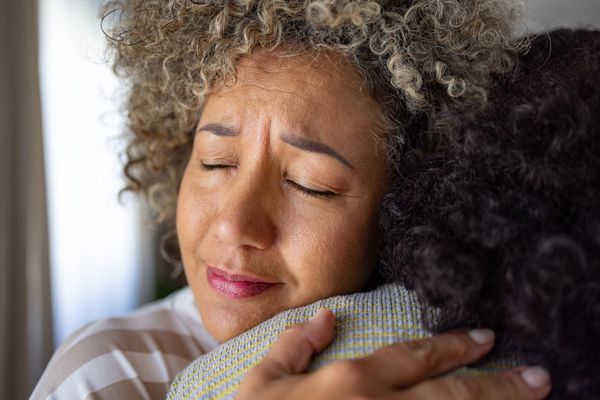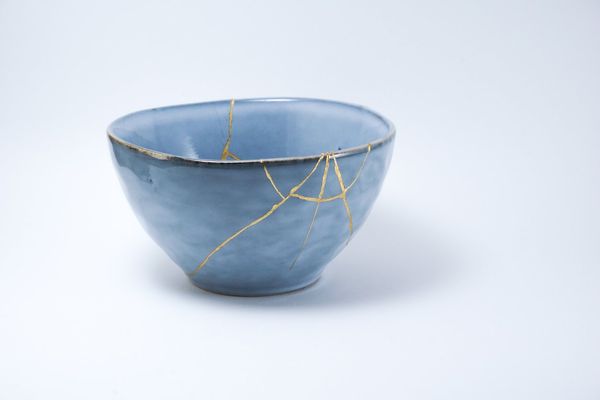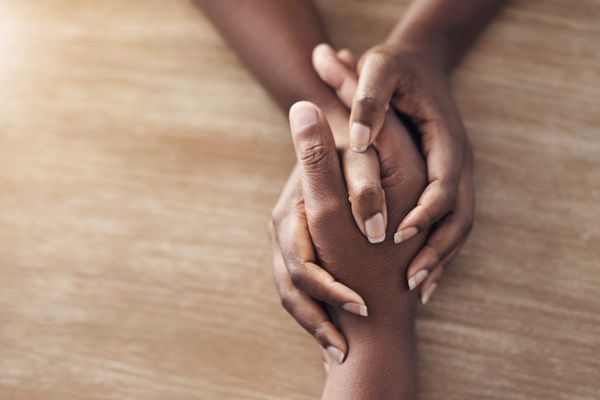As far back as the late 1800s, epidemiologist William Farr studied the condition of marriage on people's health in France by dividing the adult population into three separate categories: the married, the celibate (those never married) and the widowed. When he analyzed the relative mortality rates of all three groups at various ages, the epidemiologist found the death rates of the unmarried to be much higher in proportion to the marrieds, with the widowed faring worst of all.
So, in a nutshell: marriage is good for your health. Lots of subsequent studies back that up.
But not so fast. It's further complicated when you imagine lots of different scenarios, like these: is someone who has always been happily single not as healthy as someone who is happily married? Or is someone who is happily divorced not as healthy as someone who is happily married? Not sure. Or does being married, period - even if it's a lousy one - offer health benefits, too?
One answer may be found here: Last year, when researchers at the Center on Aging at the University of Chicago studied four key aspects of midlife health: chronic conditions, mobility limitations, self-rated health and depressive symptoms, they found that divorce or spousal death often had a prolonged impact and negatively affected all four areas. And the researchers also found that multiple divorces - which no doubt create lots of stress and feelings of loss and powerlessness – are far worse than never marrying at all.
But what does seem obvious here is that if you are married, it behooves you to work on keeping that union happy for the sake of your health.
And that's where my friend and fellow blogger (https://www.projecthappilyeverafter.com/) and author Alisa Bowman comes in. Out of her extremely sage and sane marriage advice blog grew her book. You see, some years ago, Alisa was busy planning her own husband's funeral. No, it wasn't because he was diagnosed with a terminal illness. It was for the simple reason that her marriage was extremely unhappy, and contemplating her husband's death felt way easier than contemplating divorce or even contemplating a way to make her marriage, which then felt totally and forever hopeless, better.
Alisa new book, "Project Happily Ever After: Saving Your Marriage When the Fairytale Falters" chronicles her intense four-month project to save her marriage. I asked Alisa about her experiences.
Q. Why did you choose to share your story?
When I was working on my marriage, I felt so alone. I thought I was the only person in the world who was stuck in a bad marriage. I felt like a loser for allowing my marriage to fall apart. I was ashamed, embarrassed, depressed and hopeless.
After working on and improving my marriage, I began talking about the experience here and there. At book club I might mention something about the novel I had been writing about the wife who kills her husband and gets away with it. Over coffee I might tell a friend about how I once planned his funeral.
What I learned was startling: I wasn't alone. Most of the people I opened up to had similar stories to share. About the death fantasy, one of my friends said, "I think we've all been there at one time or another, haven't we?"
It made me want to share it all with a wider audience. I wanted others to know that they were not alone. I also wanted them to know that there was hope.
Q. Professionally, you write about a lot of things, among them health. What types of health-related problems, whether they manifest themselves physically or mentally, most commonly occur from unhappy marriages? And, if you care to get personal here, did your own health suffer as a result of your unhappy marriage – and conversely, improve once your own marriage improved?
Sure, an unhappy marriage is a stressor—one that affects the body much like depression, anger, anxiety and other negative emotions do. When my marriage was at its worst, I was exhausted. I kept coming down with colds and other illnesses. I had a stress disorder that was so bad that I even went to my doctor and told him that I thought I was having a heart attack. He sent me to a stress reduction class, and that class led to me finding the clarity and courage I needed to work on my marriage.
Once I worked on my marriage, I gained more energy. I also gained something else: the ability to care for myself. Part of what was wrong with our marriage is this: I was a martyr who put herself last. Once we worked on our marriage, I realized that I needed to be proactive about taking care of me. Now I exercise regularly, I attend meditation class religiously, and I get enough sleep. All of that is important for my health. It's also important for my marriage. If I don't care for me, I get grumpy and resentful, and then my marriage suffers.
Q. Was there one defining moment when you decided to choose to save your marriage versus giving up on it?
Yes, there was. On Mother's Day I went to New York to meet a good friend for dinner. It was the first night I'd ever spent away from our 3 year old. During dinner, I told my friend about my marital problems. I told her that our marriage was dead. I told her about the novel I was writing about the woman who kills her husband and gets away with it. I told her that I didn't remember the last time I'd had sex.
She listened. I asked her, "When did you know it was time to give up?" She's divorced and remarried. I thought for sure she was going to give me permission. That's what I wanted: permission to end it. For some reason, I really wanted to hear someone else say that my marriage was hopeless. She didn't say that. Instead, she told me to go to marital counseling. She told me that she thought my marriage could be fixed, but that I would need to try harder. She pushed me back into my marriage. I will forever thank her.
Q. I know so many women who were unhappily married and subsequently divorced their husbands. What would you say to them – that for the sake of their health, it would have been better to try to save the marriage despite all the problems?
I don't judge other people's marriages or their choices. A lot goes into the decision of whether to stay or go, and some marriages cannot be saved. My marriage did not suffer from any of the following terminal issues: serial cheating, addiction, or abuse. It's also important to note that I could save my marriage because my husband was willing to try. He worked with me. I did not do this alone. Not all spouses are willing to try.
More important, I think regret is probably just as destructive or your health and peace of mind as is staying mired in misery. So for the people who have already ended a marriage I would say this: learn from it and move on. Stop feeling ashamed. Stop worrying about what other people think. Stop wondering if you could have saved it. You didn't. Make it your goal now to learn the skills you need to learn in order to make your subsequent relationships good ones. Learn the skills of assertiveness, forgiveness, humility and more.
Q. In your opinion, is there a way to know when it's time to give up on your marriage? After all, not all marriages can be saved like yours was, and sometimes they shouldn't be, anyway... sometimes you're just better off apart rather than together.
Assuming serial cheating, addiction, or abuse are not the cause of your problems, then the only way to tell is to try to save it. Start a project. Give it a few months. At the beginning of the project, rate your marital happiness on a scale of 1 to 10. Near the end of the project, rate your happiness again. Is it improving? Then keep working. Is it the same or worse? Then your marriage might be broken.






